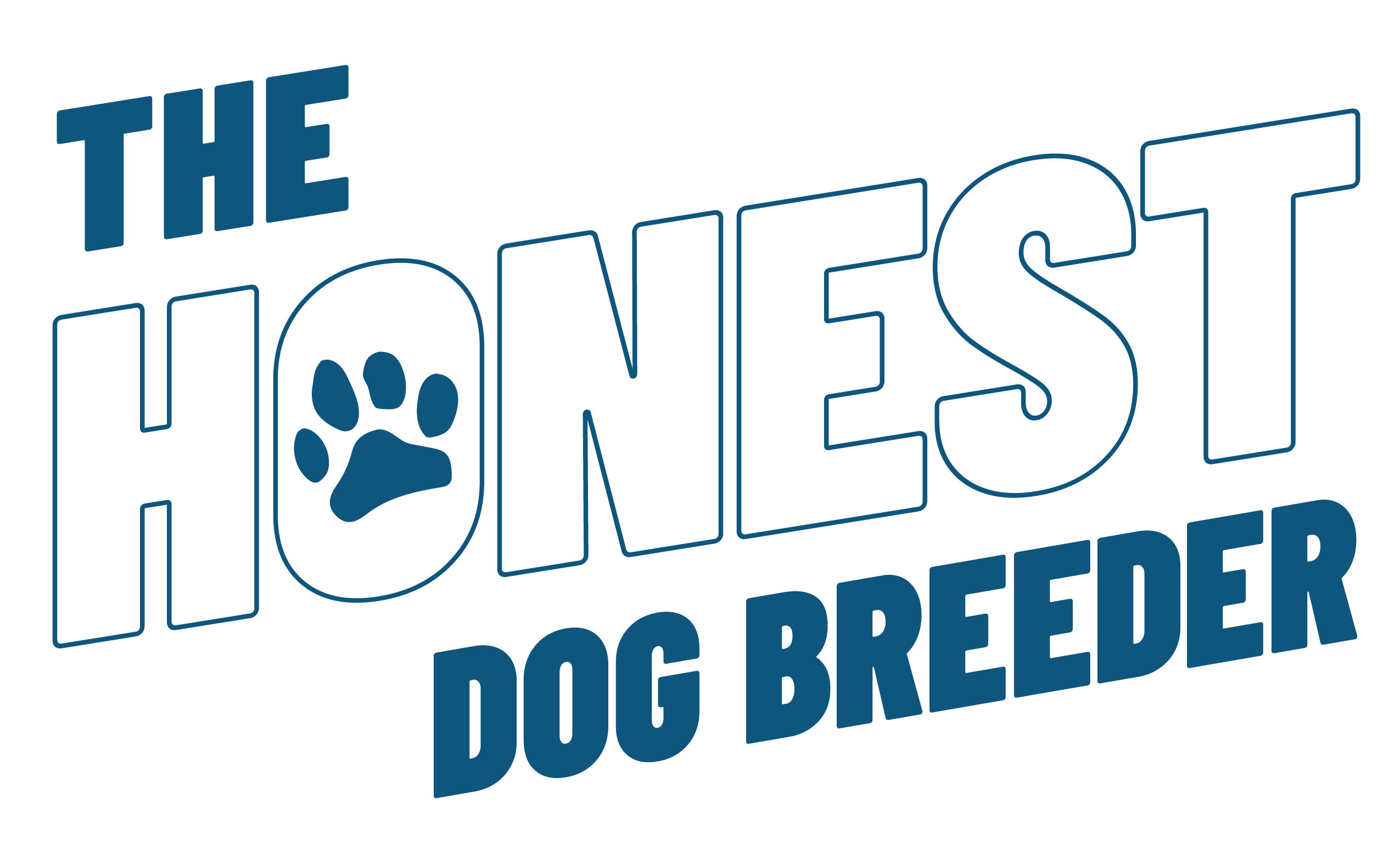Which kind of breeder are you?
The Reactive Breeder
The first kind is what I call the reactive breeder. They’re passionate, hardworking, and they care deeply — but they’re always catching up. It’s like they can never get ahead, they’re running around with their head cut off trying to keep puppy pens clean, give the adult dogs quality of life, responding to buyers in text messages late at night because they forgot earlier. They have good intentions when they wake up: they’ll take pictures of the pups, post them on the website; but then it’s six at night, dinner still needs to be made, and watching a show on Netflix is the relief they need from the chaos of the day.
It’s a constant scramble, like you’re juggling a thousand plates—and you are—but there has to be a better way, this isn’t sustainable, and yet you can’t seem to find a way out of it. These breeders love breeding, they’re usually quite good at producing great dogs, but they’ve lost sight of what it was supposed to be like, how breeding was supposed to give them the life they wanted, not the thing dictating how their life would be.
The Intentional Breeder
Then there’s the other kind of breeder, the intentional breeder. These breeders think about their breeding business all the time, they are actively working on it, but they don’t feel consumed by it. They have breathing room, space, clarity, and they know how it fits into their life, how it provides them the life they want, not just financially, but in those beautiful moments when you hand the perfect puppy to a family, knowing you gave it your all, or when they are contacted by a buyer who is already sold on their program before they even speak.
Do these breeders have problems? Of course. We all run into problems. After all, we deal with live animals, in their infant form, and the general public. Of course it isn’t going to be perfect every time, BUT, when you have the right systems in place, like these breeders do, it gets easier and easier to manage. These scary moments turn more into bumps in the road rather than real problems that feel overwhelming.
Want to Get the Roadmap to a Successful Breeding Program?
Becoming the Intentional Breeder
Yet, few of us start out as the intentional breeder. We often think we are being intentional, but so often we haven’t gone far enough into the depths of breeding to be that intentional yet. At the root of intentionality there is a mindset shift that has to occur. You have to make the decision to be that intentional breeder.
I remember getting that third dog back from the same breeding pair. He was a good dog, he was healthy, athletic, playful, birdy—he was everything you’d want in a bird dog, yet they didn’t want him. It was tempting to blame the owners; it was easy to think they were lazy, not committed, or that they simply didn’t appreciate the beautiful dog they had owned. Yet, I couldn’t leave it there; it wasn’t enough. In all fairness, they were good owners—all of them had been good owners. He was healthy, well-fed, happy, but he was also unwanted, given up on, and returned to the breeder … a “nice” way of being discarded. And he was number three after all; the third dog returned from this litter. There was something else at play.
Those first two I chalked up to a weird situation, a fluke, but I couldn’t ignore this third one. The third one’s a charm, right? It was time to start digging. It was time to change not just what I was, but who I was as a breeder.
When I started breeding I had what I thought was a plan: breed healthy dogs, place them in good homes, make a little money. They were intentions, but they weren’t well articulated, certainly not well designed. As I went about it, I just sort of reacted to everything that was happening. “Oh, we have umbilical hernias? That’s an odd fluke, I suppose I’ll discount the dog.” Or, “Oh, you’re interested in a puppy! Sure! Which one would you like?” I didn’t know that umbilical hernias had a huge nutritional link, nor did I think that matching the family to the personality of the dog was a thing, I hadn’t even considered anything like temperament testing. I reacted to things as they came up; I didn’t know any better.
As I went along, things got worse, especially when Giardia hit. I lost puppy after puppy. I called buyers who had puppies who were falling ill, and I worked closely with my vet trying to figure out what was happening. It was all reactive. There wasn’t any preventative care, nor anticipation of a need there. I was such a newb.
Most breeders start out as reactive breeders. Many of us think we are being intentional, but we have no idea of the depths of the intentionally that’s required to have a successful breeding program. It’s a lot. We can’t simply say we breed health-tested dogs. It’s not enough, it doesn’t guarantee success, it doesn’t guarantee the type of dog you want to produce, nor the success of those dogs in their families. We react as things go poorly, doing our best to fix them.
You’ve probably felt like a reactive breeder at some point in your breeding program, maybe you’re there now. You often find yourself putting out fires, doing your best to manage chaos; a lot of times it feels more like herding cats rather than breeding dogs.
I don’t want you to feel like you’re already behind when you wake up Monday morning. I don’t want your husband to ask you, “Are you sure you want to keep breeding?” because he can feel you’re overwhelmed and he hates the stress on you. But how do you switch? How do you become the intentional breeder and break the cycle of being reactive?
Well, it doesn’t happen in one day. In fact, it happens over time with little decisions here and there. Like when I decided it was time I got to the bottom of why these seemingly perfect dogs were getting returned. It happened when I lost a buyer’s deposit and, instead of ignoring that system failure, I decided to find a solution, and ended up landing on HoneyBook and organizing my whole buyer management. It happened when I saw my website wasn’t converting and it was time for an overhaul. It’s a process. But it starts with the question of:
What opportunity is this giving me to be better or to improve a system I have?
So, instead of looking to blame the situation, ignore it, or chalk it up to a fluke, get curious.
Yet–I’ll be honest–what we can figure out ourselves is only so good. When I feel stuck, mulling my processes over and over, I can’t just stay in my head or in ChatGPT; it’s important to get out there and expose yourself to new ways of doing things. My dad completely understands this idea of consuming content to grow your understanding of things and, because he used to worry that I would run out of ideas with podcasts, not thinking dog breeding could be this complicated, he bought me subscriptions to a few dog magazines, like Dogs Naturally and Modern Dog. They are both super different and geared towards pet owners more than breeders, BUT, he was right, they always have something new that I learn. They show me what new buyer trends are happening in the market.
Yet, what helps me the most is talking with other breeders. Meeting you on a strategy call, seeing what’s important to you, what you’re trying, what’s been working—and what hasn’t—is how I gauge all my content. I am consistently getting better because of hearing back from you.
I see the same thing inside the Honest Dog Breeder Society: the breeders come to live calls—sometimes at their wit’s end with a situation—and then they bring it up on the live call and people chime in with their thoughts. It isn’t just me doing coaching on the live calls. I certainly chime in, but it’s more a conversation. Invariably, the breeder walks away with new ideas and things to think about.
Recently a breeder was stuck. She had a puppy who didn’t fit her normal puppy temperaments and she was struggling to sell him, not sure how to advertise him. So she jumped into the discussion boards, gave a brief rundown of the pup and situation, and asked what people would do. Within a few hours, there were over 13 comments on the thread as people chimed in with their thoughts and techniques. The breeder reported back two days later, after implementing some of the ideas, that not only had the puppy sold to a wonderful family, but she also got two deposits for her upcoming litter!
In another instance, a breeder decided she had bigger plans for her breeding program: she designed a blog to support her buyers and began to push that information out to an email list. Her newsletter is growing like crazy, and she is able to sell her dogs for thousands more than is normal for the breed. People understand that what she is producing is better, and she is getting great buyers—people who really appreciate and respect what she’s doing. She has been generous in sharing her experience in the community, and she’s inspired other breeders to follow suit.
It’s an incredible community; I enjoy each and every member I interact with. We have brand new breeders, all the way up to breeders who’ve been breeding nearly 40 years. It’s a wealth of knowledge when great minds get together, and I love seeing everyone’s businesses grow.
Introducing the Honest Dog Breeder Society Community Membership
In speaking with some breeders, I realized that it was overwhelming for them to jump into the Honest Dog Breeder Society because they felt the pressure to watch all the masterclasses or consume the educational content. While that’s helpful for many breeders, there are many of you out there who aren’t looking to consume new content; rather, you’re looking for community: a simple way to stay fresh on the happenings of the dog breeding industry, what’s going on with the market, and what people are doing to improve their programs and pivot. And that’s why I’m so excited to open a new membership level inside the society: it’s the Honest Dog Breeder Society Community Membership, and it gives you access to all the discussion boards, live calls, and their replays, as well as direct-messaging members inside the community. It’s all the community without the educational content, so you can stay up-to-date without the cost—nor the pressure—of the additional resources.
So maybe this is your moment, the moment when you make a pivot from reacting to being intentional. You can start by browsing the discussion boards, asking a few questions, watching some replays, and joining us for a live call. It’ll give you a fresh perspective and a little inspiration.
You can learn more at honestdogbreeder.com/community.
If this is where you’re at, I’d love for you to join us inside the community. Not because you need to, but because you’re ready to. You’re ready to transition to building something that you love, that loves you back.
Thank you for joining me for another episode of the Honest Dog Breeder Podcast, with me, your host, Julie Swan. I can’t wait to join you in the next episode and meet you on the inside!

